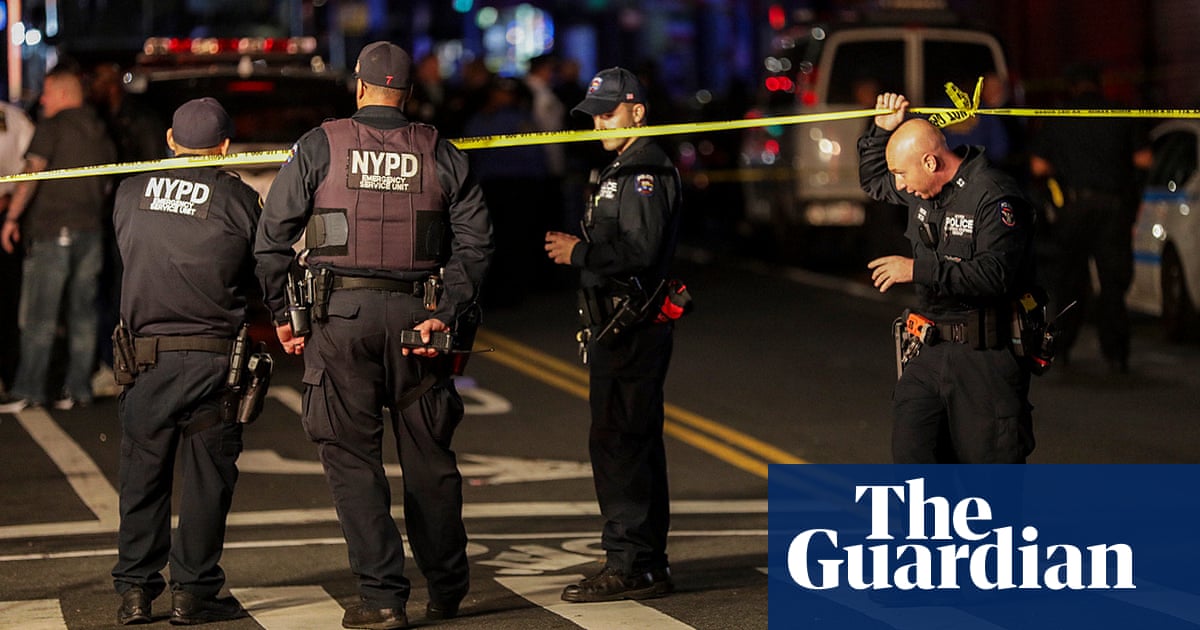i’m all for full transparency regarding all police activity - i’m not for full realtime transparency regarding all police activity.
active shooter scenarios, violent crimes and everything that invites rubbernecking (read: situations where MORE people are a bad idea, which is most police/ambulance business) should probably not attract people; a 24h delay for release would be enough tho.
my inner cynic already tells me - without searching - that noone thought about automatically releasing the info after a delay. :-(
I genuinely like this idea, because it would allow to reach both goals.
The problem I see is that this would probably go down the same as the bodycam idea, with inconvenient recordings vanishing due to “technical issues”.
You’d need an independent third party doing life recording and delayed release. Subjectively, the US don’t have a great track record with these.
Easier idea: Just publish last week’s encryption key. Probably won’t happen because some tech supplier will lobby for a more expensive solution.
They already find any reason not to release body camera footage. You really think they’re gonna release all policy activity after 24 hours?
I find it fascinating how in the United States police radio communications aren’t encrypted and therefore anyone can listen to them. In my European country all emergency service communications are TETRA encrypted.
Which had/has a built-in backdoor for years.
https://www.wired.com/story/tetra-radio-encryption-backdoor/
EU security forces didn’t really care as TEA2 wasn’t backdoored. It’s a mid-90s standard with different encryption levels for different actors, it should be blindingly obvious that whatever is publicly available is backdoored. You may not like it, I do not like it, but it should’ve been obvious.
The actual own goal was that while all EU security forces always had access to the secure stuff plenty of operators of critical infrastructure (think energy suppliers etc) used TEA1 as that’s what they were given. Also some EU forces bought TEA1 equipment presumably because they didn’t know what they were doing, with or without help from manufactures with an overstock of TEA1 radios.
Here’s a 37c3 talk about the whole thing, from the people actually breaching the protocol.
Aside from those encryption issues (which are finally getting addressed btw) TETRA is a great protocol, though. By now a bit dated so bandwidth isn’t exactly stellar (forget video streaming or such) but devices can talk directly to another just as in olden times, setting up a base station simply increases range, radio channels are now virtual, it’s all very sweet. Basically TETRA is to radio what GSM is to rotary phones. Which, as GSM phones don’t tend to be wired, makes a hell a lot more sense.
deleted by creator
They actually need to focus on hospital communications. It’s scary what all you can pick up from paging systems in cleartext with a $20 USB SDR and a laptop. Patient names, rooms numbers, alert codes, everything.
If you have nothing to hide, you have nothing to fear (or something like that)
Surprised it’s not encrypted in the first place. You haven’t been able to listen to police communications in Finland since the 90’s. I would assume most of Europe is the same way.
Apparently Americans feel like this is a way of keeping taps on what their police do.
It’s interesting. One argument for encrypting is that it keeps private info of the people involved private. But some retort that they can just use other means to communicate that info. But wouldn’t that mean that it doesn’t help keeping taps on the police doing shady shit since they can just use those more secure means of communicating anyway?
I’m surprised it was nos encrypted already.
Any one can silently hear their frequency. I looks like an easy way to know if police is coming your way, and how avoid them.
Are they switching to use Whatsapp?
Yeah police radio should never be encrypted.
I suspect it would be helpful for protecting sensitive situations. Currently (at least with EMS) they call each other’s cellphones for that, not ideal.
What kind of situations?
EMS communication over unencrypted channels is limited by HIPAA, patient information must be kept vague to protect patient privacy. In the event that, say, an individuals name needs to be given to the receiving facility to facilitate review of records prior to arrival by the ER physician, some other method of communication has to be used.
Encryption on radio communications would not help that at all. It would still be a HIPAA violation to share sensitive information on a broadcast, even if it is encrypted.
Edit: I hope y’all downvoters aren’t actually responsible for patient information.
That’s very incorrect. End to End encryption is legal under HIPPA. All the receiving parties have likely filled out the HIPPA yearly thing, so they’d be covered.









